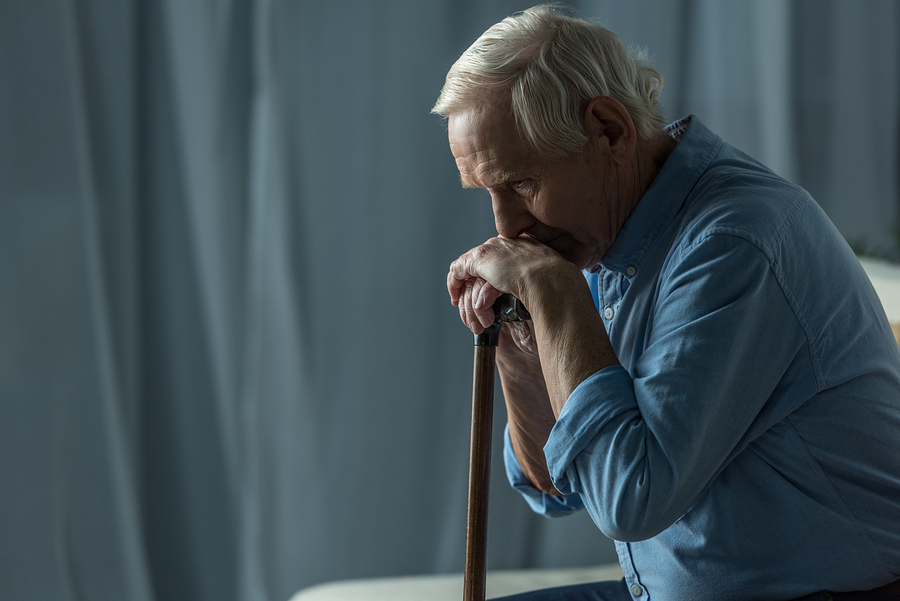
Depression in Older Adults
July 9, 2019As a caregiver, some of your duties will go beyond those described in your normal day to day activities. This can include recognizing signs of depression in the elderly adults you provide care for.
Symptoms of Depression in the Elderly
Normal symptoms of depression include:
- a loss of interest in activities
- fatigue
- trouble with sleeping habits
- an increase in body aches and pains
- weight loss
- loss of appetite
The National Institute on Aging has a comprehensive list on the common symptoms to look for. It’s not always easy to recognize symptoms of depression in older adults. Some things may seem to be a normal part of aging. This is especially true with things like fatigue, body aches, or even changes in sleeping patterns. This is why it’s important to understand the personality and habits of the person you care for.
What You Can Do
If you notice a change in behavior or an increase in the symptoms that can show signs of depression, don’t neglect it. It doesn’t mean you need to worry right away. Maybe there was something else that occurred that caused a difference in behavior or habits. It’s important to have a conversation with the person you care for. Understand how they are feeling overall. Though, ultimately if you notice some of the signs and symptoms you should seek the advice of a medical professional.
Sometimes, the symptoms above can be caused by other underlying medical problems. And even certain medications can actually increase the risk of depression in adults. Hence, this is why it’s important to bring up your concerns to an experienced professional.
Preventing Depression in Older Adults
There are many different things you can do to help those you care for. Exercise, a healthy diet, and socialization are all big factors that play into the prevention of depression. Both exercise and socialization are commonly neglected as we begin to age. But, it is extremely important to not allow these factors to be neglected in your life or a loved one’s life. Aging is hard enough without feelings of depression. Therefore you owe it to yourself and the people you care for to do the best you can to take preventative steps.
But, even if proper preventative steps are followed, sometimes it isn’t enough. And you need to know that this isn’t anyone’s fault. It’s a that point that the best thing you can do is seek help.
Conclusion
It’s not always easy to recognize symptoms of depression in older adults. This is actually why being a proactive caregiver can make all the difference in someone’s life. If you understand their routine and habits it’s easier to notice signs of change. And in the case that you don’t currently have a caregiver for your loved one, it can be a great reason to get a caregiver. Caregivers can provide consistent care. Because of this, they provide constant socialization and an extra set of eyes to watch out for the day to day changes in behavior.
If you have any questions about our caregivers at Homecare Powered by AUAF give us a call at 773.274.9262.
Articles:
-
How to Use FaceTime: a Senior’s Guide
March 20th, 2024 -
The Best Organic Cleaning Products for Caregivers
March 19th, 2024 -
Celebrating St. Patrick’s Day with Seniors
March 14th, 2024 -
Intellectual Activities for Seniors to Keep their Brains Stimulated
March 13th, 2024 -
Tips for Communicating with Seniors with Hearing Loss
March 12th, 2024 -
How to Learn a New Language as an Older Adult
March 7th, 2024 -
Foods that Support Bone Health in Seniors
March 6th, 2024 -
A Note to Our Staff for Caregiver Appreciation Day
March 1st, 2024 -
The Importance of a Senior/Caregiver Bond
February 21st, 2024 -
Recreational Sports as Fitness for Seniors
February 27th, 2024 -
Exploring the Wonders of Reminiscence Therapy
February 15th, 2024 -
Staying Educated on Alzheimer’s Disease and Dementia Care
February 14th, 2024
Call Now! 773.274.9262




